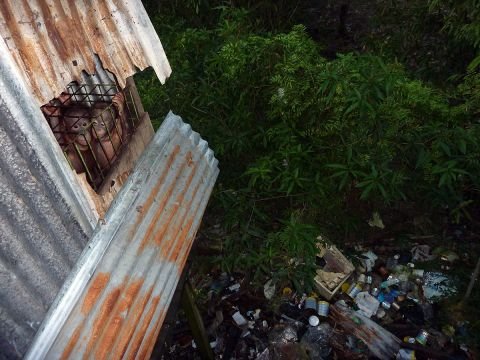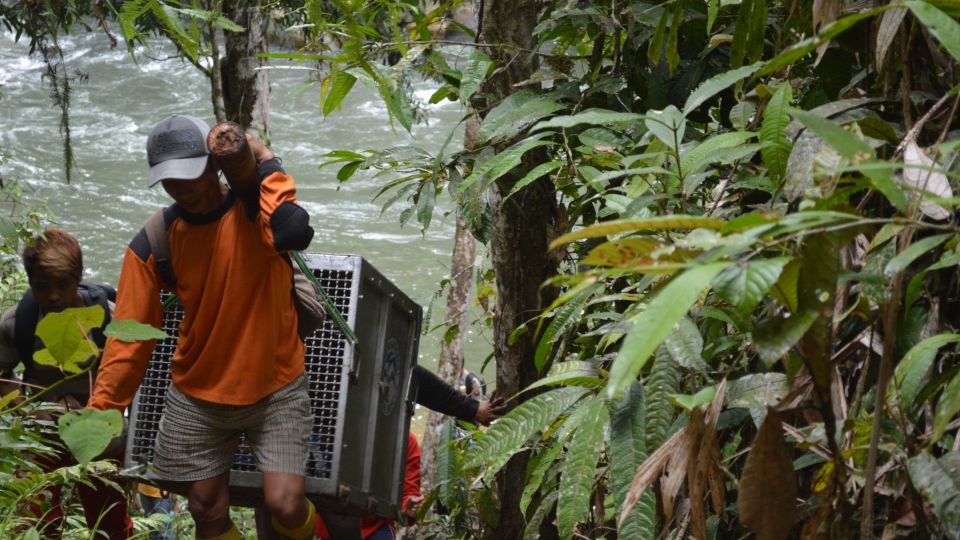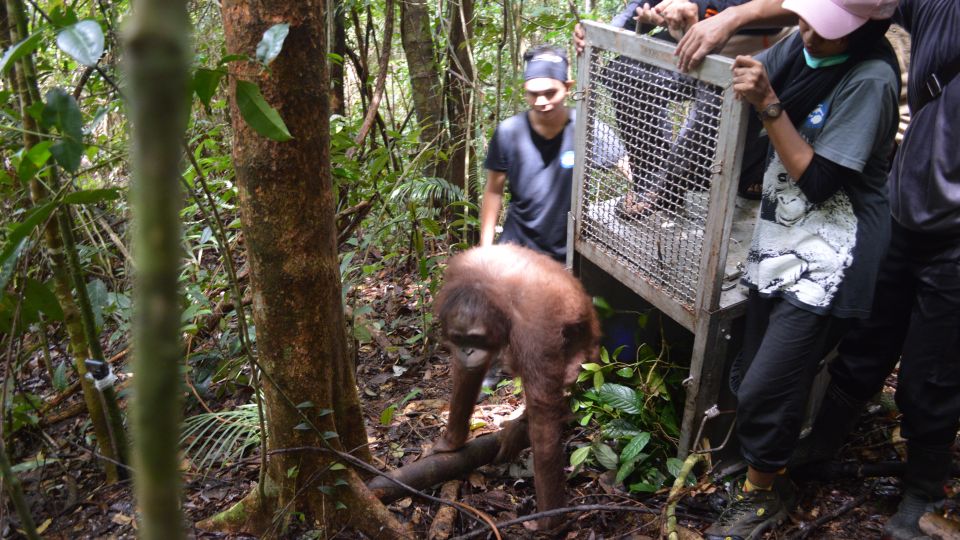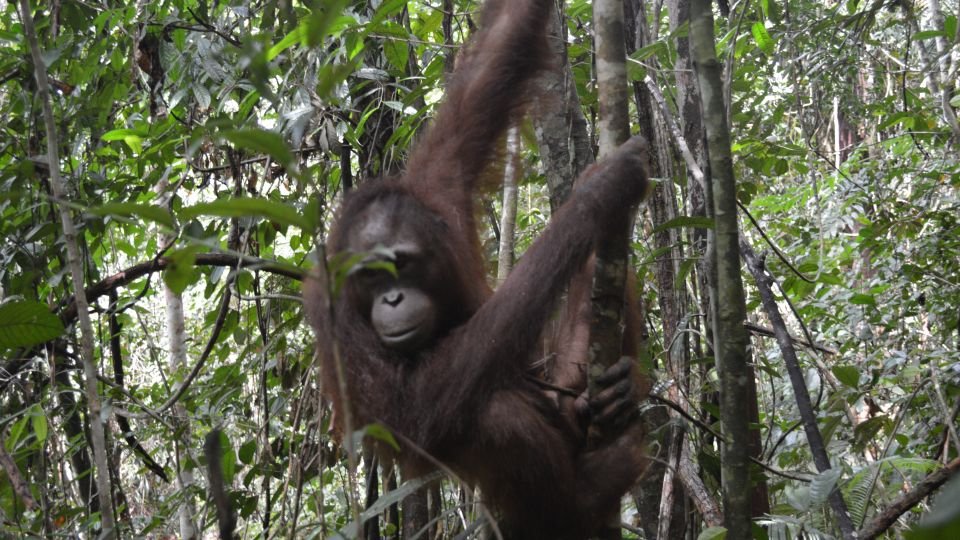
An orangutan called Mimi has been returned to the rainforests of West Borneo after five and a half years in rehabilitation. She was released into the Bukit Baka Bukit Raya National Park (BBBRNP) in a joint operation by our team in Indonesia, in cooperation with the department of Conservation and Natural Resources (BKSDA) of West Kalimantan and the National Park authorities in Melawi District, West Kalimantan (Indonesian Borneo.)
The ten year old female orangutan had been brought to our rehabilitation centre in Ketapang in May 2011. She had been confiscated from illegal pet traders in 2010 along with Momo, another baby. Like so many other orangutans, their mothers had been murdered and the infants had been taken from the forest. At the time of their confiscation they were waiting to be sold to animal traffickers and smuggled out of Indonesia.
Mimi and Momo were being kept in appalling conditions at the back of a house, in a tiny cage overlooking a sewer in the town of Sintang. They were both suffering from severe malnutrition and Mimi was nearly hairless. They clung constantly to each other and screamed whenever they were pulled apart.

Mimi and Momo quickly adapted to their new surroundings at the centre and made lots of friends. Their rehabilitation continued steadily for the next couple of years until tragedy struck in 2013 and Momo died of an acute infection that had spread quickly through his body. Mimi was deeply saddened by the loss of Momo but she proved resilient. Along with the other orangutans at the centre, she continued her rehabilitation in forest school, learning to climb, find food and make a nest, just as she would in the wild.
Eventually Mimi was moved to a pre-release island where her behaviour was monitored to assess her progress and she was finally deemed ready for release. Dr Sulhi Aufa, Medical Team Coordinator, noted: “Mimi is worthy of release. Her record of behaviour has been showing positive developments. We have also inserted a transponder under her skin so that the monitoring team can track Mimi’s location when she is released. We are sure she will be happy in her new home.”

Karmele Llano Sanchez, Programme Director, said: “The rehabilitation process is a long and costly one, taking as long as seven or eight years in some cases.”Some of our rescued orangutans have been pets for years and have been treated so badly that they have suffered serious damage to their health. Luckily Mimi was saved before it was too late. There are other orangutans at our centre for whom help came too late for them ever to be rehabilitated and released. Sadly they will stay in our centre for the rest of their lives. “
The journey from the Orangutan Rehabilitation Centre to the National Park took more than 40 hours by car. The team continued the journey by boat for an hour and a half and then trekked for six hours through the thick forest of the park. Mimi was kept in a habituation pen for one night to reduce the stress of the long journey. Then, when she was released she immediately climbed the trees and began foraging.

We fielded a team to monitor Mimi’s progress in the wild because she is a rehabilitated orangutan and has spent years away from the forest. The monitoring team included several residents from the hamlets around the release site. They had previously received training in monitoring and observing orangutan behaviour. The team starts work before the orangutans wake up and continues until the orangutans build a nest and go back to sleep at night. They are tasked to record Mimi’s movements, activities, and the types of food she eats. This is done to ensure the orangutans are truly able to survive in the real forest. To date, the team has released 11 orangutans in the national park.
“The orangutan monitoring team do an outstanding job,” explained Dr Adi Irawan, Operational Manager. The team lives in a camp in the forest, waking early in the morning and only returning to the lodge when the sun has gone down. They follow the orangutans for almost 14 hours a day. “We’re very pleased to see their passion and concern for the survival of the orangutans. We believe their presence will ensure that the released orangutans survive and live as nature intended,” he concluded.
Thank you to our partners Orangutan Outreach who played a huge part in making Mimi’s rescue possible and for sharing these photos.

